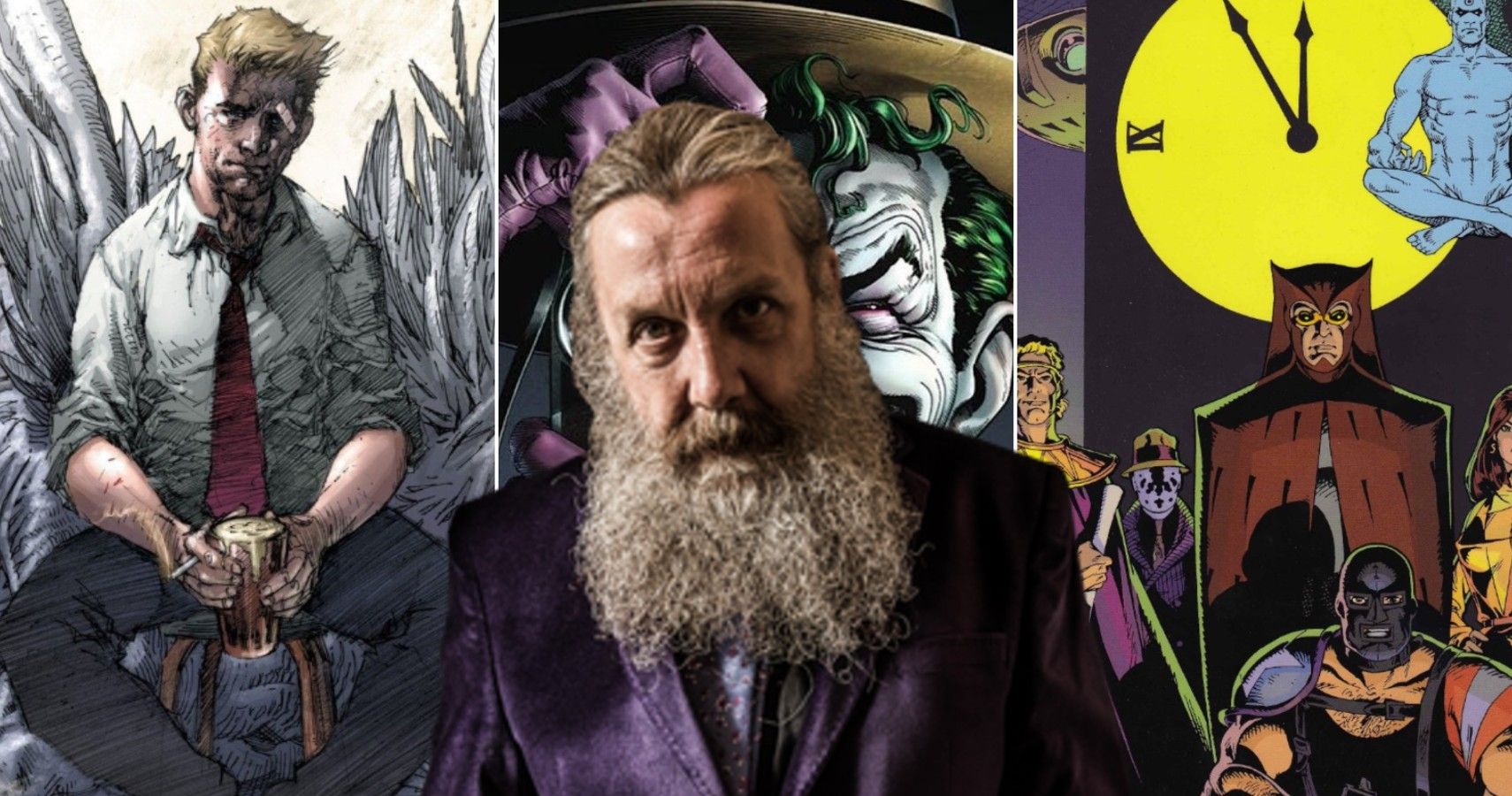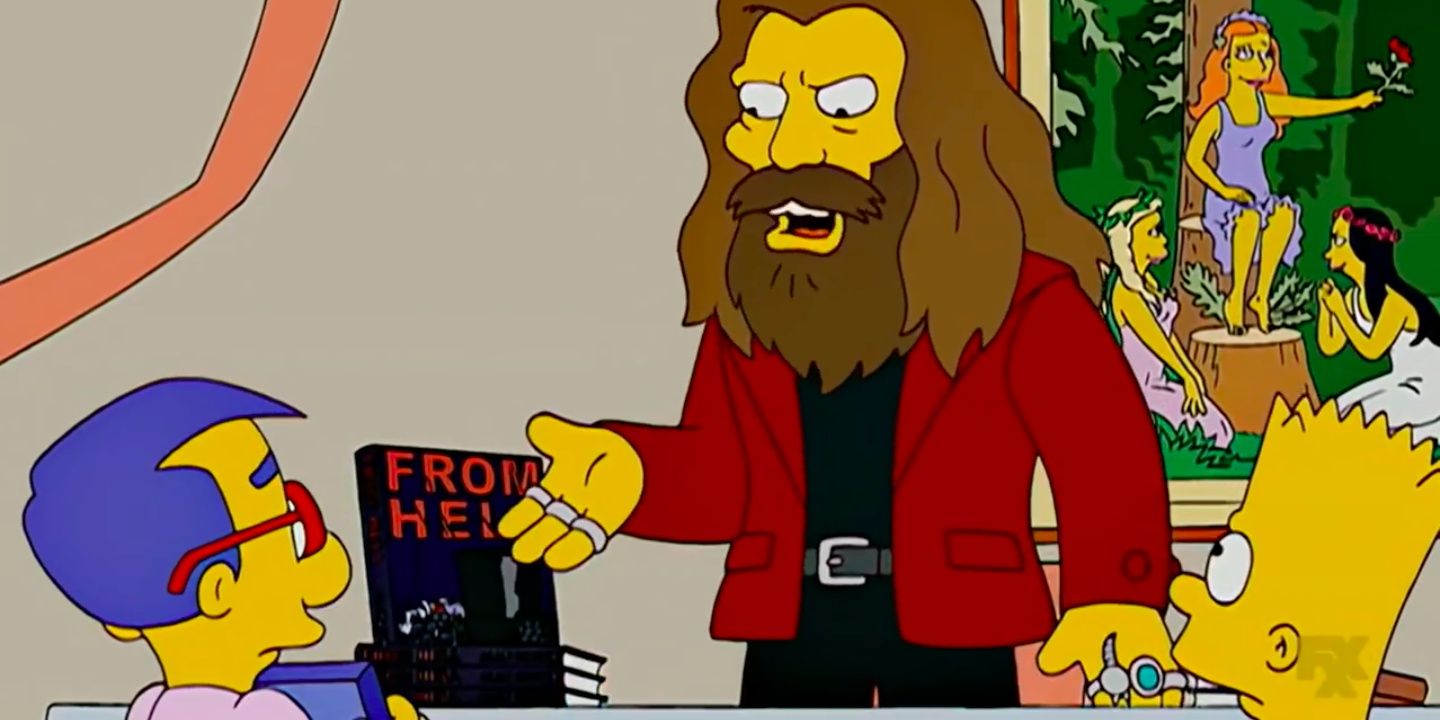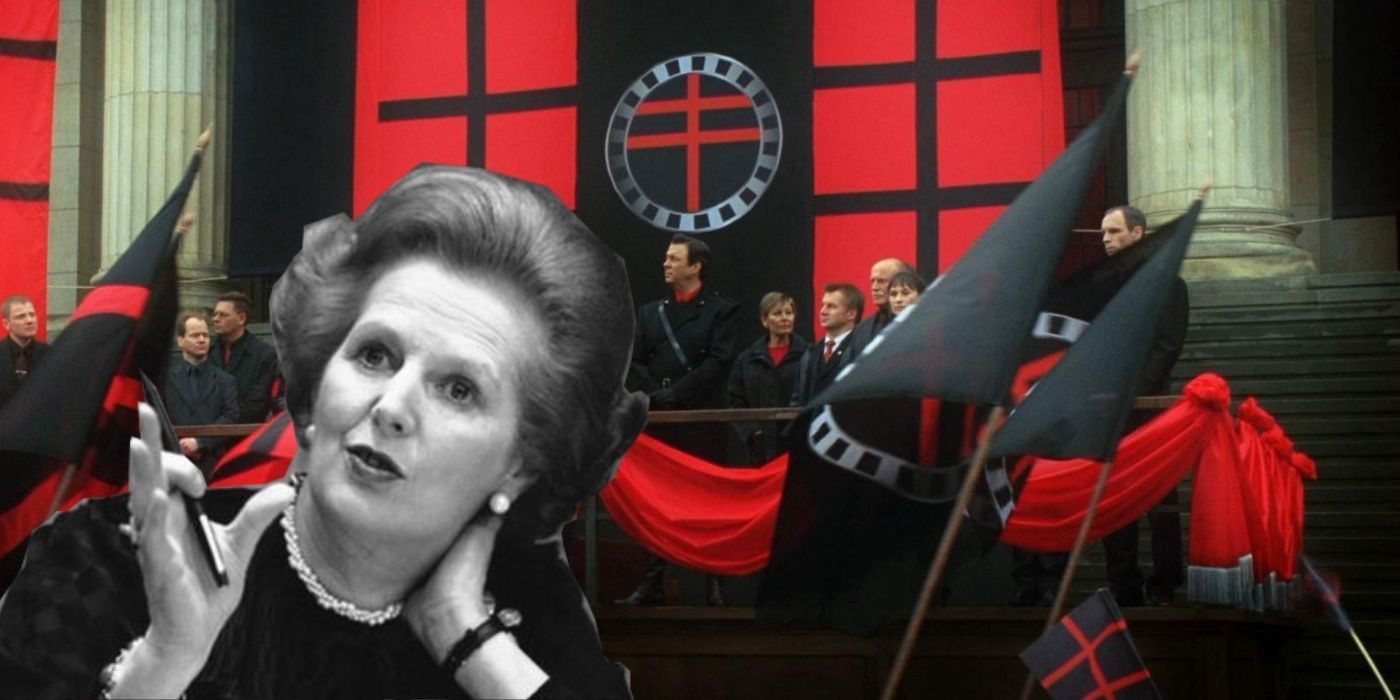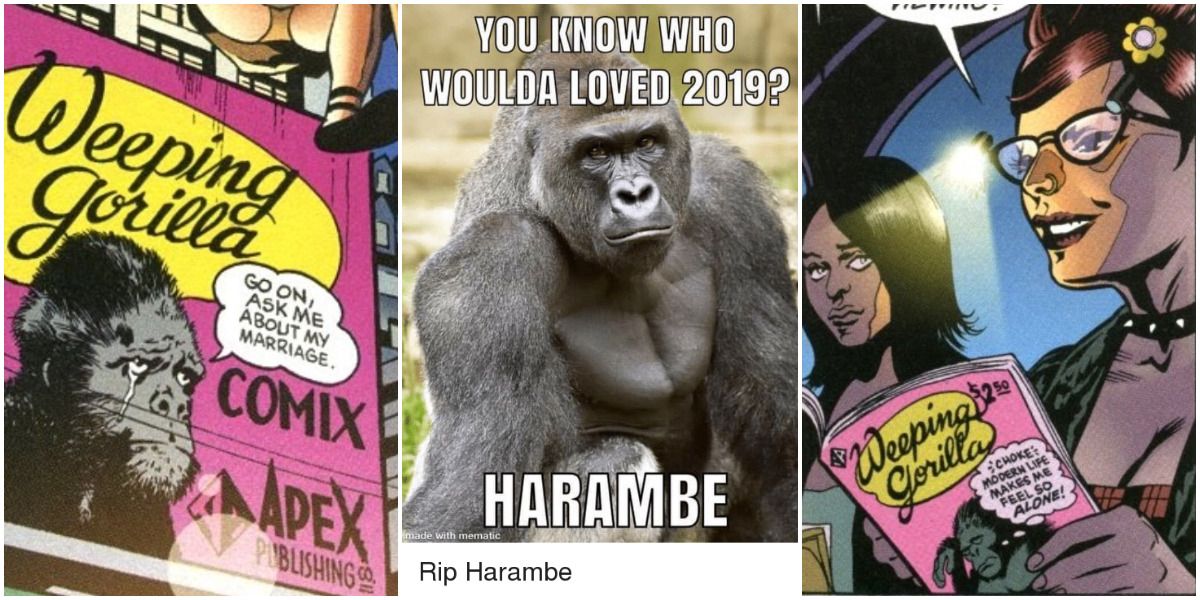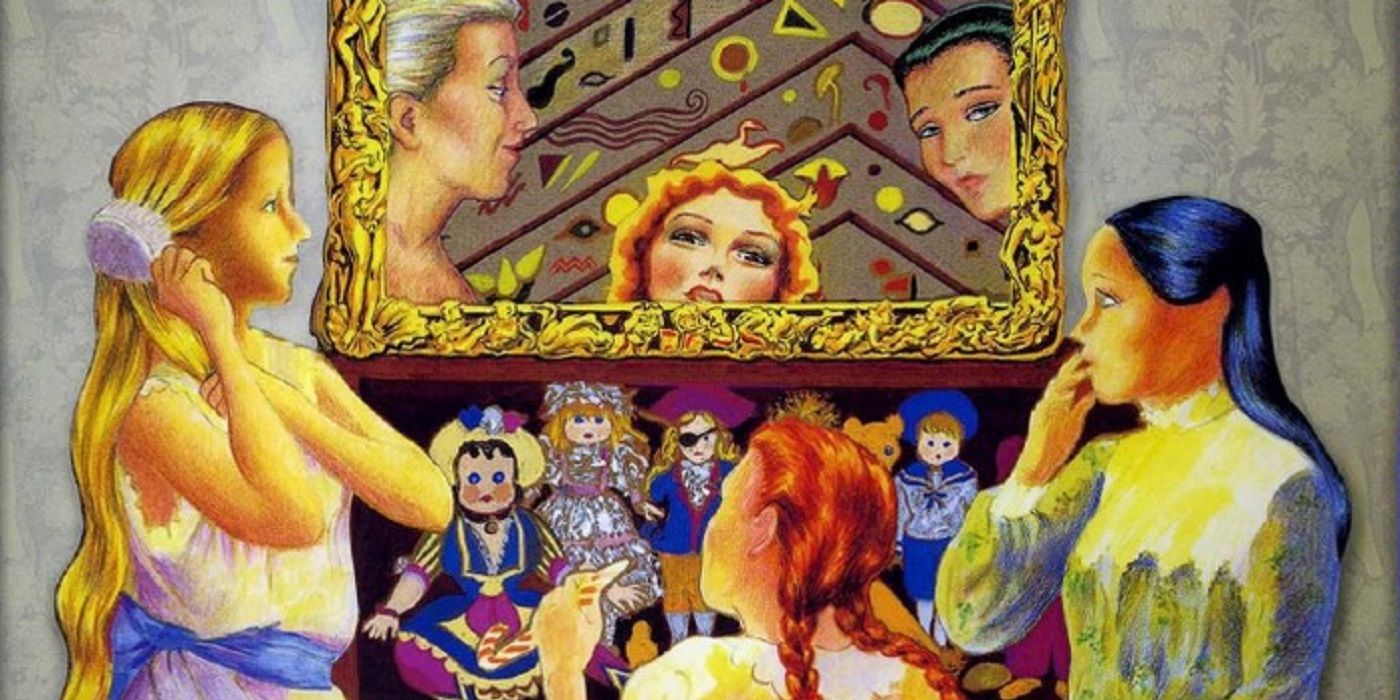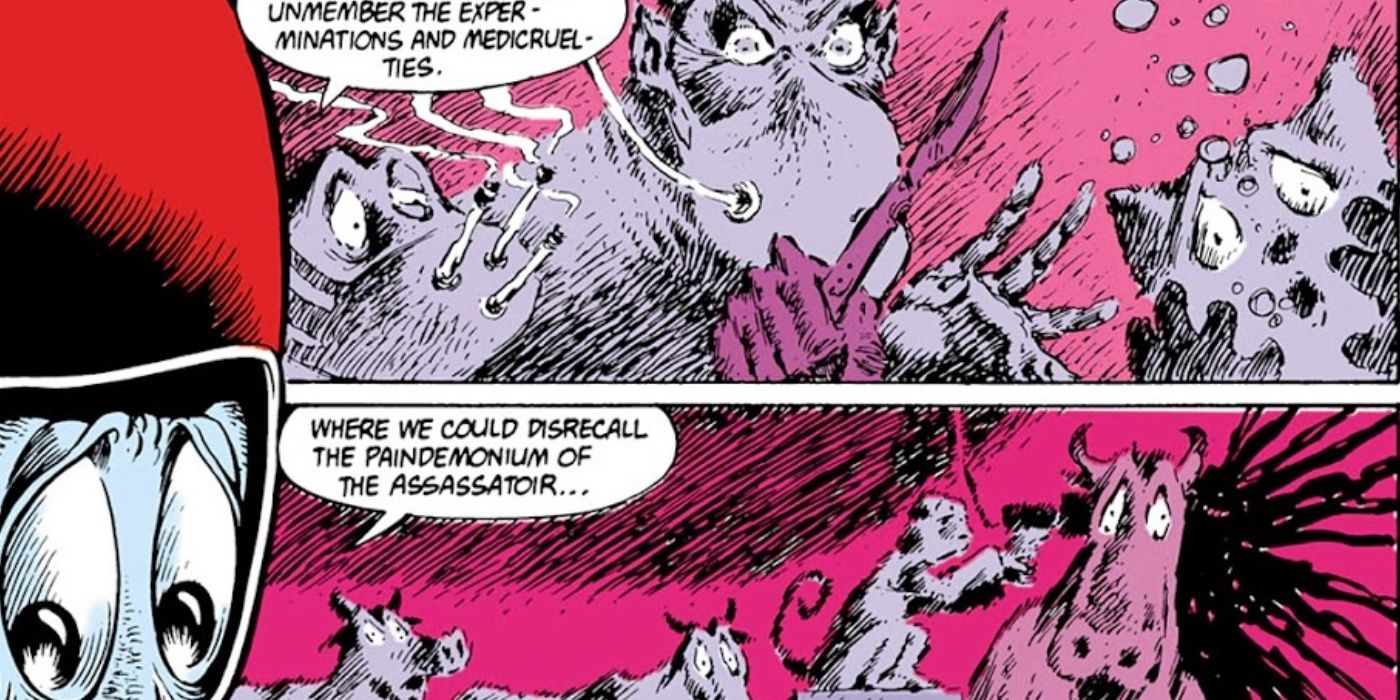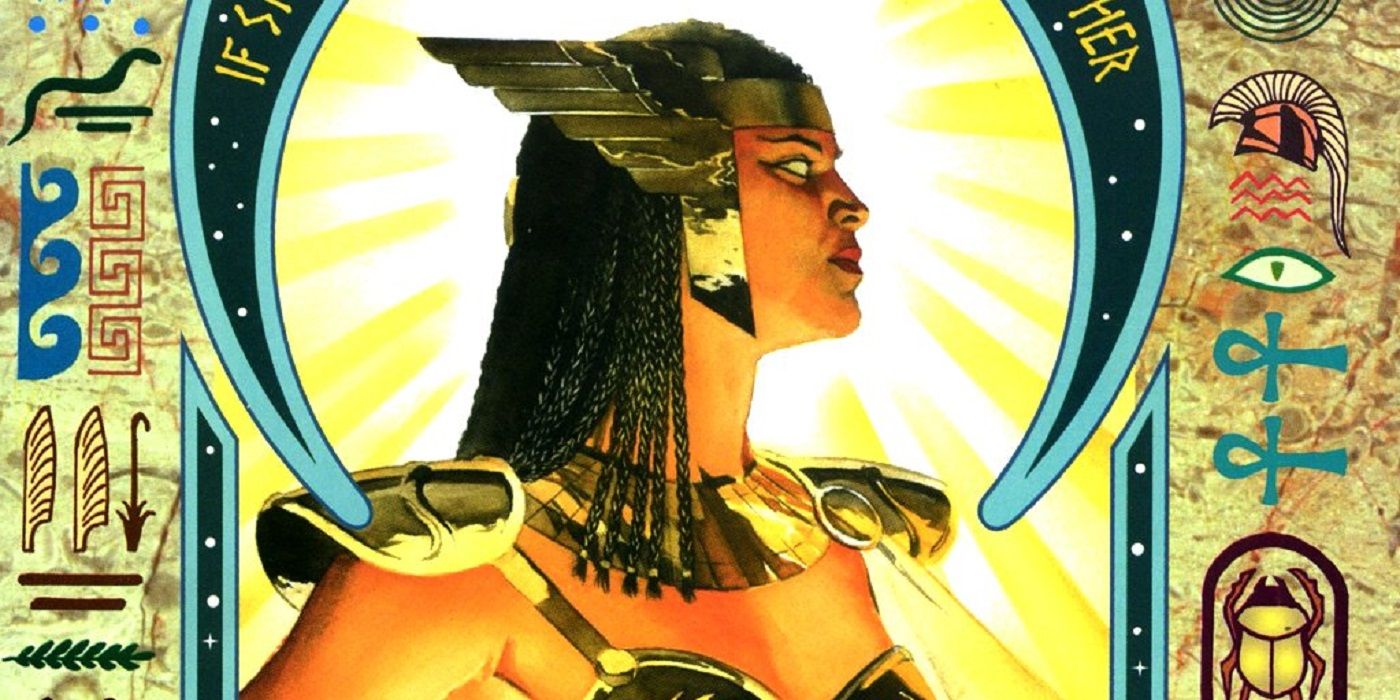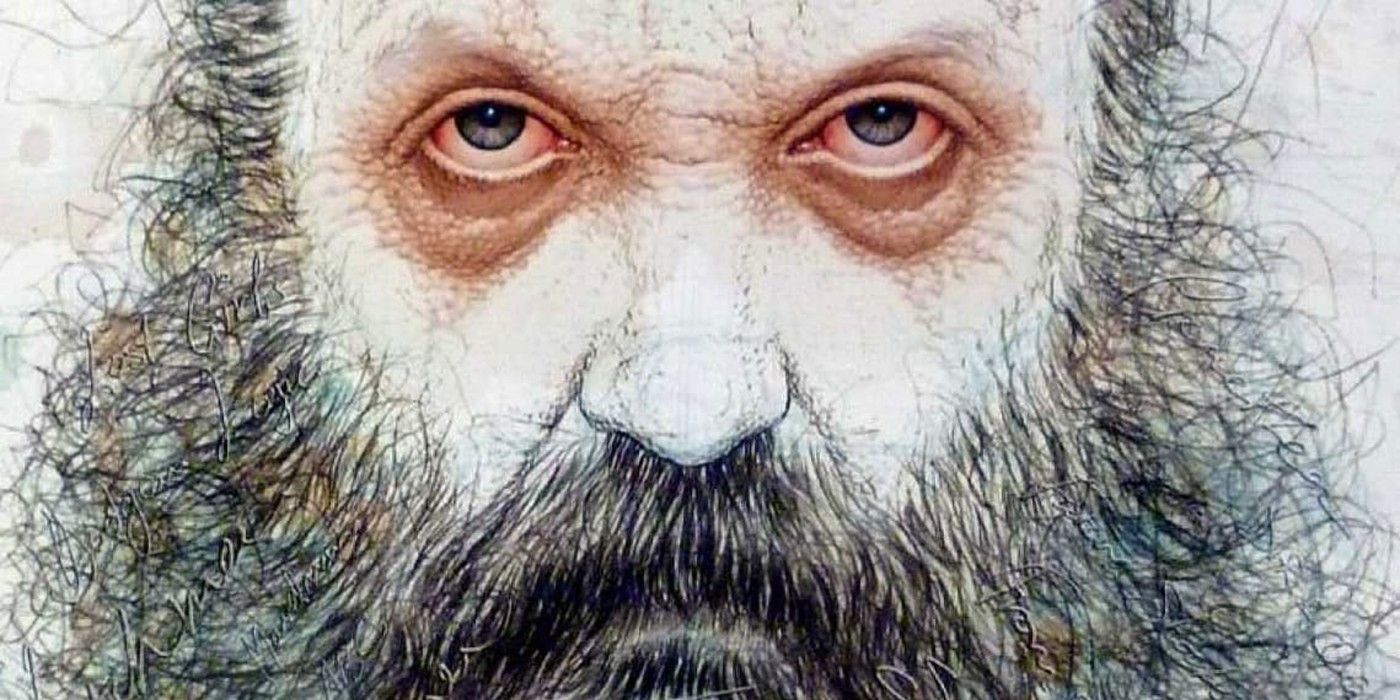Alan Moore is one of the great names in comics history. He began his career working in the British comics industry, but it was when he took over writing DC's Saga of the Swamp Thing that he really made his mark, infusing these lurid pulp horror stories with a level of literary sophistication and nuance that revolutionized the entire medium.
In addition to being a world-class storyteller, he is a philosopher, and his comics are famous for containing brilliant ideas that were way ahead of their times. Sadly, like many geniuses, many critics have scoffed at him, only for Moore to later be proven right.
10 Rorschach and Violence
Superheroes have always used violence to stop criminals. But violence is not a series of cartoonish slaps with sound effects doled out by costumed do-gooders. Outside the adventures of superheroes, violence in the real world has lasting consequences.
The character Rorschach was the logical conclusion of superheroes using excessive force to beat people into submission, flat-out torturing people without a second thought. This trend toward grimdark superhero violence has since become a staple of the genre, but Moore understood this before anyone else.
9 Corporatization of Comics
The American comics industry sprang up out of the Great Depression and gave hope to millions of readers with stories about superpowered heroes taking on the evils of street crime, corrupt wealthy elites, and United States' enemies overseas. For decades, comics remained a hobby for working-class people, produced by working-class writers and artists. However, one artist after another was screwed over by Marvel and DC as these little publishing houses turned into massive corporate entities.
Alan Moore was one of the first who discussed the corporatization of comics, how the medium evolved into a hobby of the middle class, and the way that creators were exploited as their works were cannibalized by Hollywood.
8 V For Vendetta and the Nature of Fascism
Alan Moore has never made a secret of his politics, and his hatred for Margaret Thatcher inspired many of his best works. In fact, the white supremacist fascist regime in V For Vendetta was directly inspired by Thatcher’s conservative government. While Thatcher was technically a proponent of neoliberalism, both historians and political theorists today acknowledge the way neoliberalism leads directly to the rise of fascism.
Thatcher described her neoliberal beliefs with the slogan "there is no alternative." Neoliberalism was heralded by both political parties in the United States as well as the notable political theorist Francis Fukuyama (who has since recanted). Of course, Thatcher’s friendship with the fascist dictator Augusto Pinochet illustrated the close ties between the two government philosophies, but Moore was one of only a few people who saw the connection.
7 Weeping Gorilla and Meme Culture
Promethea is a surreal mixture of science fiction and mysticism. Set in a world where hovercraft taxis float above New York’s streets and medical technology uses grafts of cloned skin, the story is far more concerned with Kabbalah, Hermeticism, and the Tarot.
One background detail in the world is the popular character Weeping Gorilla, an illustrated figure seen on billboards and in comics. The character is literally just a sad gorilla who cries and says relatable depressing slogans. Not only did Moore predict internet memes about a decade before they were created, but he showed how powerful a single image with a short slogan could be to express the feelings of disaffected youth.
6 Pornographic Drawings and Taboos
This one is uncomfortable. Moore’s comic Lost Girls is a philosophical porno in which Dorothy from The Wizard of Oz, Wendy from Peter Pan, and Alice from Alice in Wonderland all hook up in a hotel on the eve of World War I. The book becomes incrementally edgier as the story progresses, beginning with softcore hookups and escalating to depict extreme taboos.
Within the comic, one of the characters shows others a dirty illustrated storybook. He explains that the events in the book would be completely inappropriate in real life but in the form of illustrations, they are victimless fantasies. Clearly, this is a bit of metacommentary.
5 Factory Farms
A common saying among animal rights activists is that meat is murder. While the ethics of different dietary choices are a matter of one’s personal beliefs, the cruel conditions in US factory farms are unquestionably unethical.
Most people are aware of the cramped torturous conditions in which animals live, but this was not a common talking point when Alan Moore made it the central message of the story “Pog” during his run on Saga of the Swamp Thing. Since then, the conditions have only gotten worse.
4 Christofascism and White Supremacy
One reason that V For Vendetta is among Moore’s most quoted comics is that it brilliantly encompassed his personal philosophies – and those philosophies reflected a reality people saw in their daily lives but not in the mainstream narratives spouted by politicians and the media.
An uncomfortable truth that few people ever want to acknowledge is that Christianity has always used violence to spread, going back to its expansion through the Roman Empire. Of course, this is not an exclusively Christian phenomenon, as all three major Abrahamic faiths, Buddhism, Hinduism, and Roman paganism also spread this way. However, in Western countries, both fascists and white supremacists (mis)use Christianity as a weapon to justify their agendas. The Norsefire government in V For Vendetta illustrated how hate groups and authoritarians can appropriate and weaponize religion – a phenomenon happening all over the world today.
3 The Nature of Magic
Magic is a fairly misunderstood concept in modern society. In religious studies, there are a few definitions, but none of them fit into the magic popularized by Harry Potter, The Lord of the Rings, and other fantasy series. A very short, oversimplified definition of magic is that it is the combination of belief and ritual to create an effect.
Alan Moore is a ceremonial magician. He uses rituals to create effects that alter his personal reality. People who understand magic as casting fireballs and chanting “wingardium leviosa!” might scoff at his definition of magic. Rather, his approach is closer to Descartes’s quote “I think, therefore I am.” Not only does the mind perceive reality, but consciousness can alter reality. Moore’s magical practice is rooted in the traditions of Kabbalah, Hermeticism, and Thelema. He clearly states this throughout his work (especially in comics like Promethea) yet is continually misunderstood.
2 “They say that life’s a game, and then they take away the board.”
The old adage about life being a game ignores the fact that the game is rigged. Those at the top play by a different set of rules than the rest. While many in the US believe in a "meritocracy," that word was first used in Michael Dunlop Young’s satirical essay exploring how ridiculous such a system would be.
Disability, race, gender, and the class one is born into often have more to do with how one turns out in life than anything they actually do, despite people having no control over these factors. Growing up among the poor in the UK and then attending a middle-class school, Moore learned about these stark contrasts at an early age.
1 The End of the World?
It is hard not to feel like the world is ending. There’s a global pandemic, fascism is on the rise on five continents, smartphones spy on people and providers sell their personal info to corporations, and the first Batman vs. Superman movie was so bad it singlehandedly killed the DC film universe. The good news is that the world is not ending. It already ended.
At least, that’s according to Alan Moore’s predictions throughout the 80s and 90s. He claimed the shape of time is a spiral bending in on itself, curling inward toward a single point. He explained that all the information humanity had access to doubled every X years, with X representing roughly half of the previous time span. He theorized that some time in the early 2010s, information would double every thousandth of a second, effectively ending civilization as humanity understood it.

